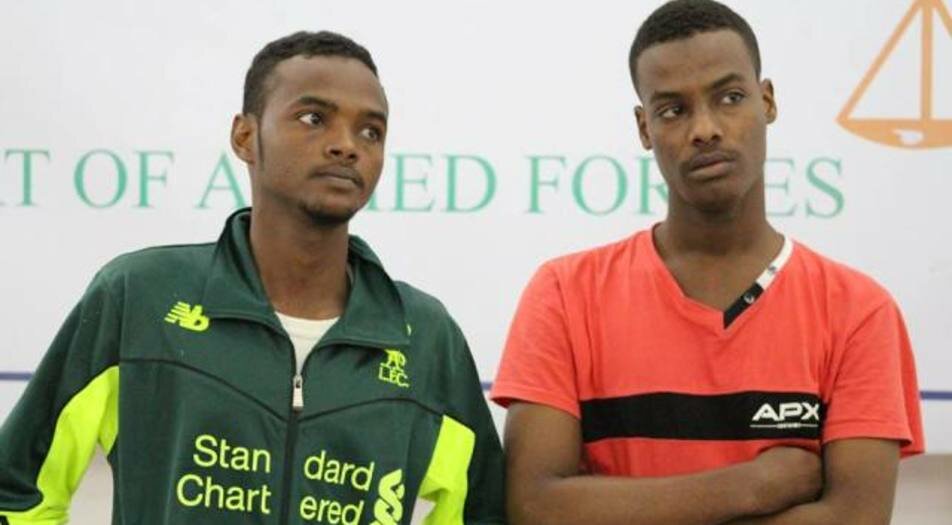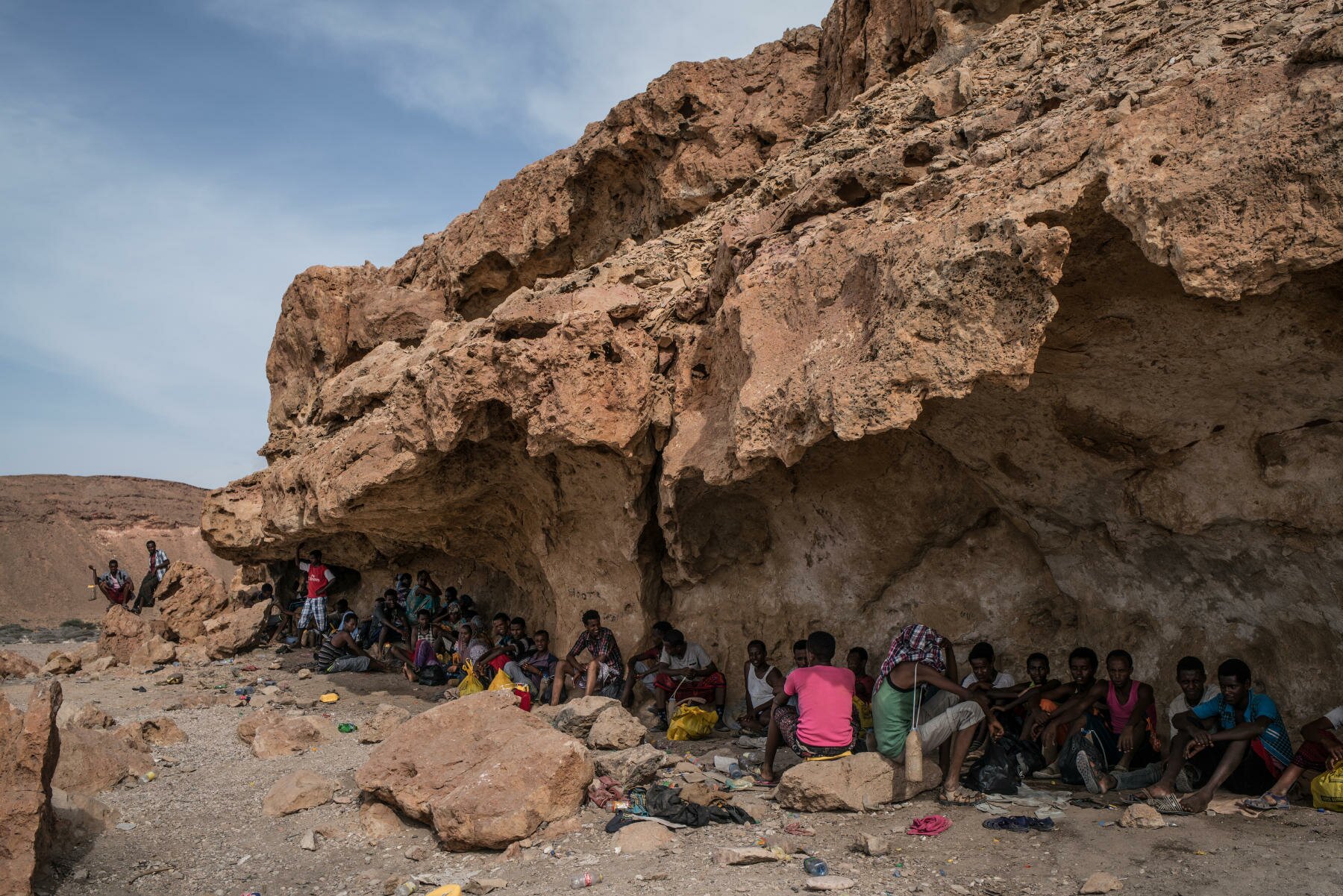 A small, dedicated team of Soldiers, Sailors, Airmen, and Marines from several different units within the Combined Joint Task Force – Horn of Africa (CJTF-HOA) are using their diverse skills and capabilities to provide logistics and life-support services to service members forward deployed throughout Somalia.
A small, dedicated team of Soldiers, Sailors, Airmen, and Marines from several different units within the Combined Joint Task Force – Horn of Africa (CJTF-HOA) are using their diverse skills and capabilities to provide logistics and life-support services to service members forward deployed throughout Somalia.
U.S. Africa Command designated CJTF-HOA as Base Operating Support – Integrator (BOS-I) in August 2016, putting the 500-person task force in charge of coordinating the efficient use of mission support resources to sustain U.S. forces in forward operating locations.
The task force responded to this requirement by creating a special office within the logistics directorate, CJ-42, that absorbed and streamlined various capabilities and manpower across the command.
“This was a true economy-of-force initiative,” said U.S. Marine Colonel Ralph Rizzo, the director of the CJTF-HOA Logistics Directorate. “This small team has made a huge impact on sustaining our U.S. military personnel downrange who are also carrying out an important mission of advising and assisting Somali and partner-nation security forces. In our line of work, logistics personnel serve to ensure our troops have what they need for mission success, and I’m very proud that my team has kept this idea in mind in everything they do.”
Forward deployed U.S. service members from several other organizations were previously conducting self-sustainment operations before CJTF-HOA was assigned the BOS-I mission. The multifaceted functions of BOS-I typically include communications integrator, senior airfield authority, tactical control for force protection, and installation commander.
“Think of BOS-I as running an austere hotel,” said Army Lt. Col. Derek Hart, director of the CJ-42, BOS-I. “The individuals we are supporting expect to be able to have basic necessities we often take for granted, like electricity to power devices and light rooms, running water to wash their clothes, brush their teeth, and a clean bed to rest on.”
The BOS-I team is required to overcome various obstacles to ensure that the customer receives an uninterrupted flow of sustainment and critical life support operations.
“It’s all about distance,” said U.S. Army Capt. Mike Smith, a regional logistics planner who provides BOS-I management downrange. “In Somalia, being roughly the same distance as the entire U.S. east coast, it can take a flight several hours to get from point A to point B. The ordering has to be lined up two, three weeks in advance. So, we have to plan and be spot on with how much inventory we’re supposed to have to make sure there’s no gap for our customers.”
Capt. Smith is the only traditionally trained logistician on the team and provides a critical source of knowledge for sustainment operations. The rest of the team, consisting of just a handful of individuals with various talents and military occupational skills, have acquired logistical planning and sustainment operations knowledge quickly through intense “on-the-job” training.
“You’re asking a few staff members in the logistics support section to act as what is essentially a department of public works – roughly a company sized element,” said Hart. “Meanwhile the mission grows but the number of people supporting the effort continues to decrease. We have to do more with less.”
Hart also noted that the BOS-I mission will be transitioning to the Logistics Civil Augmentation Program (LOGCAP) over the next few months. LOGCAP is program administered by the U.S. Army to provide contracted contingency support to augment force structure.
A few individuals on the BOS-I team will also transition management roles at various locations across Somalia to provide additional coordination and continuity of operations. Because these individuals are certified contracting officer representatives (CORs) they will provide an additional level of efficiency by remaining in place to provide oversight during the LOGCAP transition.
Navy Lt. Dan Bly, currently serving as a COR and conducting BOS-I operations at an undisclosed location in Somalia, also noted that there are advantages in the experience he is gaining.
“I’m traditionally a Seabee and was originally slated to do engineering with the [CJTF-HOA Logistics Directorate] before I got tapped to do BOS-I,” Bly said. “My intent is to make a transition into one of the public works and facilities management roles after this so in a way this ties right in.”
When asked about his experience conducting BOS-I for the forward deployed service member in Somalia, Capt. Smith smiled and said, “I’m able to make impacts to each individual at the location where I provide support. There was a sewage line that just collapsed and backed up. So rather than waiting for a contract I just repaired it. I put a new line in. I had the tools we needed to make the proper grade and all that. I didn’t have to wait – I just took care of it. You can’t beat that.”










 President Donald Trump cleared the way for the deployment of thousands more US troops to Afghanistan Monday, backtracking from his promise to...
President Donald Trump cleared the way for the deployment of thousands more US troops to Afghanistan Monday, backtracking from his promise to...

 MOGADISHU, Aug. 22 (Xinhua) -- Somalia military court on Tuesday sentenced two Al-Shabaab militants to death for killing a community leader in...
MOGADISHU, Aug. 22 (Xinhua) -- Somalia military court on Tuesday sentenced two Al-Shabaab militants to death for killing a community leader in...


